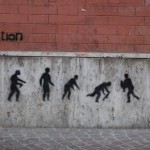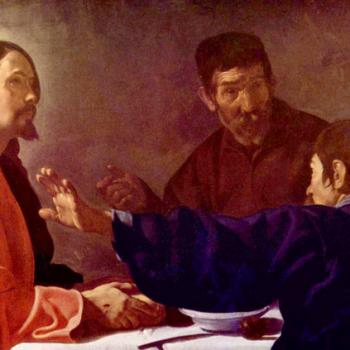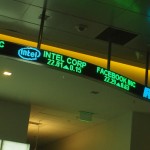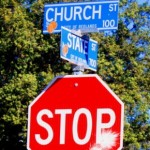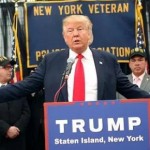First, what about when there’s not enough? Or, maybe it’s better said, when the “enough” that’s out there does not trickle into our particular worlds?
Yes, there is plenty of work to be done, but what are we to do, how are we to entrust ourselves to doing our part, when the plenty is outsourced to other countries or people with other skill sets?
I hope that such a song and theology might work on our hearts in two ways. One is that it might draw us to entrusting ourselves to God and therefore worrying less and trusting more. Second is that we might so believe that there is enough that we become a sharing people.
Though the Bible does recount miraculous feedings, there’s an interesting dynamic at work in the Jesus stories (as Suzanne Watts Henderson has pointed out). Jesus doesn’t feed the people. The disciples do. It’s their job at the beginning, and they are the ones who have to make it so. Yes, he gives them the blessed bread. But it’s their job to give it to the people.
Yes, there is enough—enough and some to share. But we as a collective people will only experience it as enough when those with more than enough actually do the sharing.
This might be the single most significant message of the gospel: that God desires us to share what has been so freely given to us: our money, our food, our acceptance into the people of God, our forgiveness, our love.
Fitting the Larger Narrative?
My second big question is this—and here’s where I really would love some help in the comments—is there a way for us to translate this, which is a deeply religious and theological and spiritual commitment, into a secular political discourse?
This summer I was talking to a former Ted Cruz supporter who wasn’t sure what to do now that Trump was the nominee. But here were his concerns: that the legalization of millions of immigrants would secure Democratic strongholds on Congress for generations, and that this in turn would secure the perpetuation and expansion of the Affordable Care Act and that there would be millions more people drawing on Medicaid and other social services.
In further conversation, what it boiled down to was this: Democrats are going to make ways for people to take our stuff—our money (mostly) and our jobs.
Without appealing to God (in this conversation with an agnostic), how do we begin to lay out a case for an economy of abundance with someone who lives in fear of scarcity? (This is someone who has retired well and has plenty stored away for the years ahead.)
We are a people whose foundational claims included that all are created equal and endowed with rights such as life, liberty, and the pursuit of happiness.
It’s interesting that our founding fathers changed the right to “property” to the “pursuit of happiness.” But property rights are a significant component of who we are as a people. We are individualistic. We want and have a right to keep what is ours. Taxes and shared spending projects bring us to the heart of differing political philosophies about what is best for the nation as a whole.
So would it take for us to make that song we sang around the table our “national anthem”? How can we become a people who see abundance and are, therefore, willing to share?


